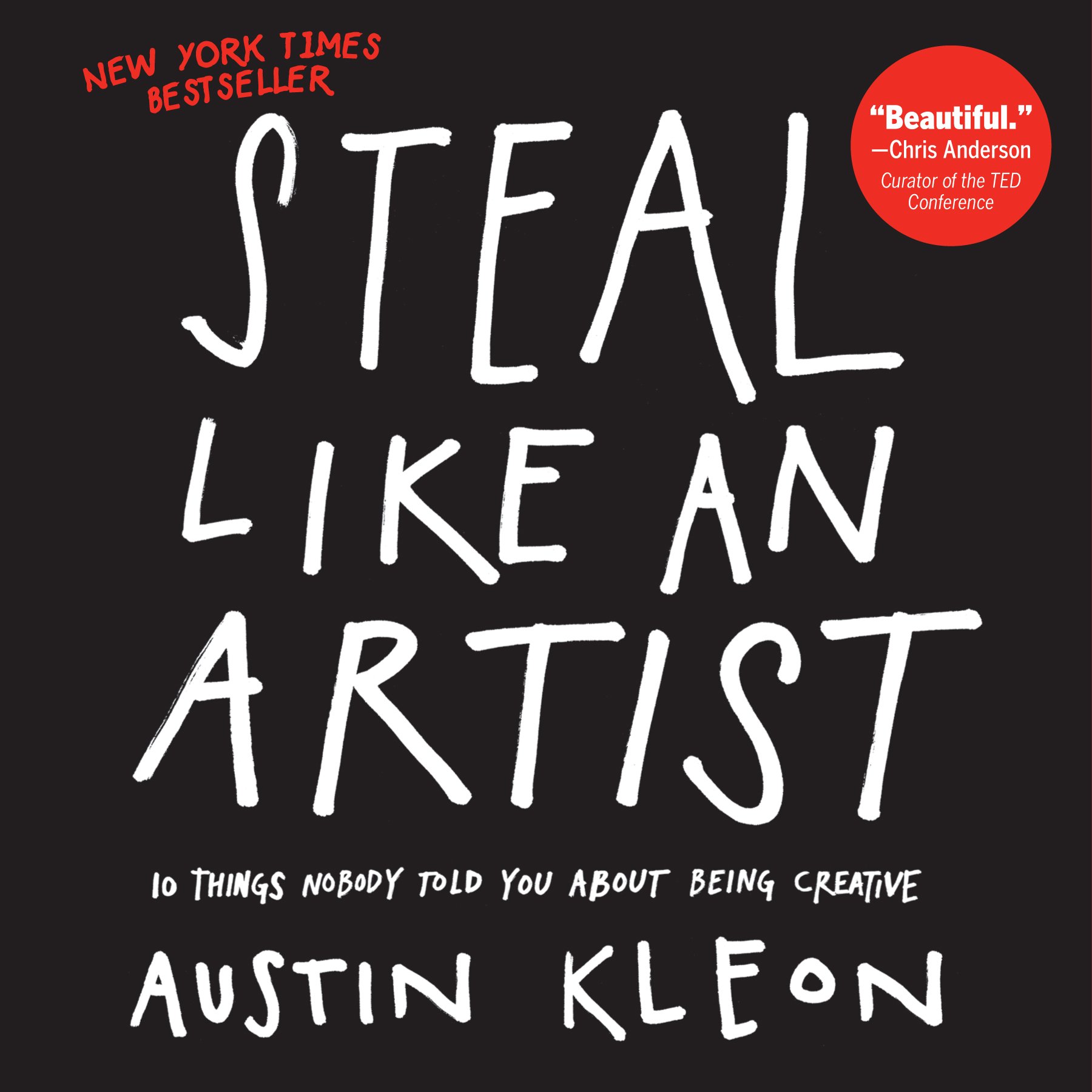
Notes on
Steal Like an Artist
by Austin Kleon
• 4 min read
Chapter 1: Steal Like an Artist
- “What is originality? Undetected plagiarism.” —William Ralph Inge
- André Gide said, “Everything that needs to be said has already been said. But, since no one was listening, everything must be said again.”
- “You are, in fact, a mashup of what you choose to let into your life. You are the sum of your influences. The German writer Goethe said, “We are shaped and fashioned by what we love.””
- “You’re only going to be as good as the stuff you surround yourself with”
- “Your job is to collect good ideas. The more good ideas you collect, the more you can choose from to be influenced by.”
- “The great thing about dead or remote masters is that they can’t refuse you as an apprentice. You can learn whatever you want from them. They left their lesson plans in their work.”
- “You have to be curious about the world in which you live. Look things up. Chase down every reference. Go deeper than anybody else—that’s how you’ll get ahead.”
- Always be reading. Get lost in the stacks of books. Read bibliographies. It’s not the book you start with, it’s the book that book leads you to.
Chapter 2: Don’t Wait Until You Know Who You Are to Get Started
- Copy your heroes. Fix what they do wrong and use their work to amplify and transform it into your own — add your own thing to it.
- Copying — not plagiarism. You’re not passing off their work as your own. You have to make it your own.
- Dress for the job you want, not the job you have. Do the work you want to do.
- “If you have one person you’re influenced by, everyone will say you’re the next whoever. But if you rip off a hundred people, everyone will say you’re so original!” — Gary Panter
- “What to copy is a little bit trickier. Don’t just steal the style, steal the thinking behind the style. You don’t want to look like your heroes, you want to see like your heroes.”
- You get to glimpse into their minds. And that’s what you really want.
- But if you can’t do this, you’ll never understand where they are coming from — and you’ll never be anything more than a knockoff.
Chapter 3: Write the Book You Want to Read
- “The manifesto is this: Draw the art you want to see, start the business you want to run, play the music you want to hear, write the books you want to read, build the products you want to use—do the work you want to see done.”
Chapter 4: Use Your Hands
- Use your hands instead of your computer once in a while.
Chapter 5: Side Projects and Hobbies Are Important
- Have multiple projects going at once. When you’re sick of one, move to another. Move back and forth. This is ‘productive procrastination’.
- “Take time to mess around. Get lost. Wander. You never know where it’s going to lead you.”
- Keep all your passions in your life. Don’t discard them.
Chapter 6: The Secret: Do Good Work and Share It with People
- “If there was a secret formula for becoming known, I would give it to you. But there’s only one not-so-secret formula that I know: Do good work and share it with people.”
- “People love it when you give your secrets away, and sometimes, if you’re smart about it, they’ll reward you by buying the things you’re selling.”
- Use the internet to get ideas and projects.
- “Learn to code. Figure out how to make a website. Figure out blogging. Figure out Twitter and social media and all that other stuff. Find people on the Internet who love the same things as you and connect with them. Share things with them.”
Chapter 8: Be Nice. (The World Is a Small Town.)
- Harold Ramis: “Find the most talented person in the room, and if it’s not you, go stand next to him. Hang out with him. Try to be helpful.”
- If that’s you, find another room.
Liked these notes? Join the newsletter.
Get notified whenever I post new notes.